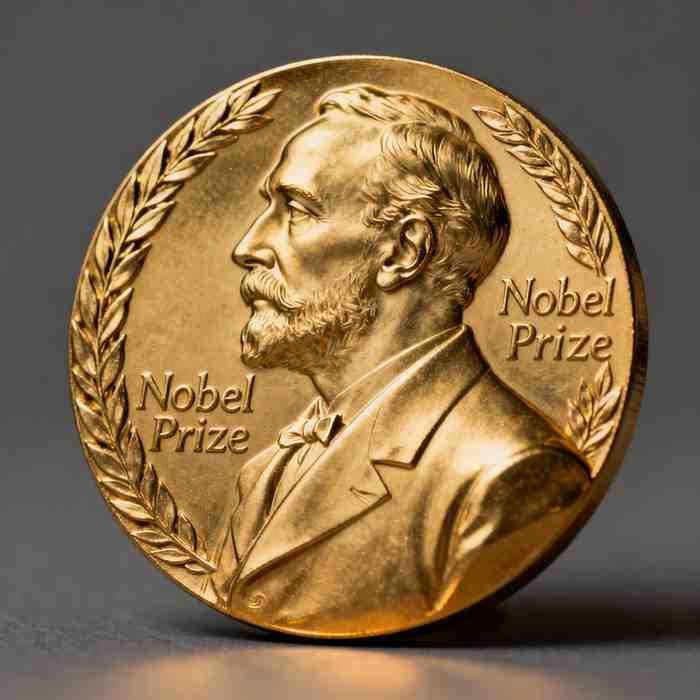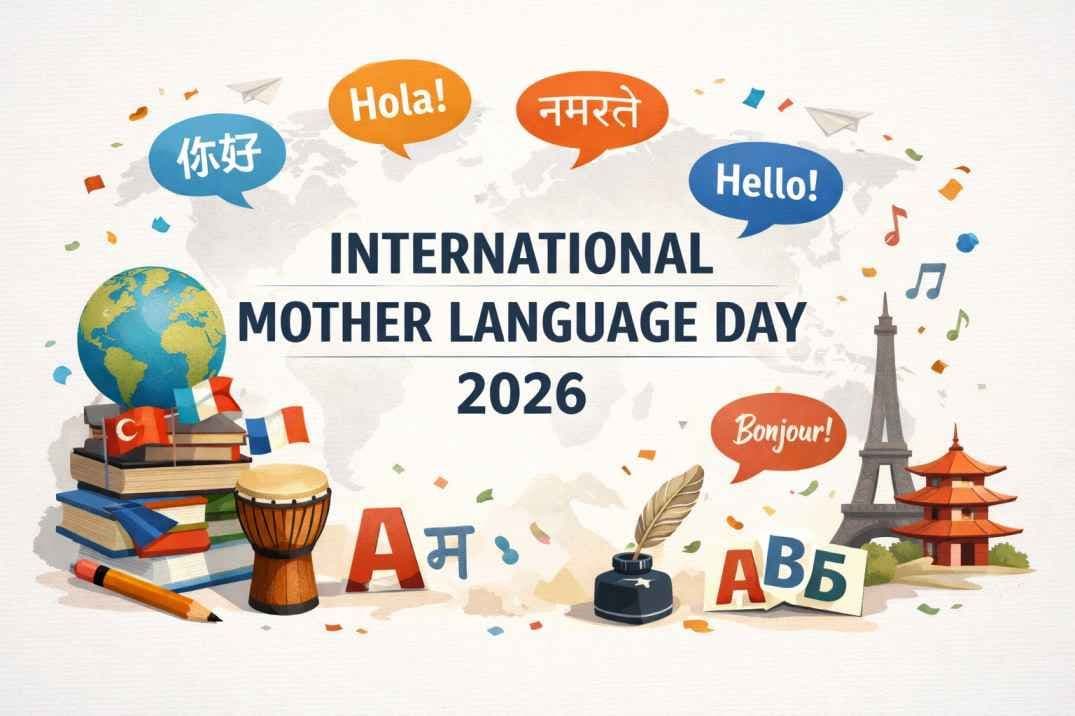Nobel Prize Highlights 2025
Oct, 2025
•4 min read
Why in the News?
Nobel Prize 2025 announcements have begun, with laureates declared in Physics, Chemistry, Medicine, Peace, Economics, and Literature.
Why Cover This Topic for UPSC
- Relevant for UPSC Prelims & Current Affairs (international awards, global benchmarks).
- Important for Essay and Interview (leadership in innovation, ethics of recognition, global cooperation).
In this guide, we cover all key facts, latest updates, and exam-oriented details you need to master the Nobel Prize topic for UPSC.
What is the Nobel Prize?
The Nobel Prize is a set of prestigious international awards instituted by the inventor Alfred Nobel. In his will (1895), Nobel directed that his fortune be used to reward individuals “who have conferred the greatest benefit to humankind.”

Key Facts:
- Established in 1895 by Alfred Nobel’s will, the first award was presented in 1901.
- Prizes are given in six fields: Physics, Chemistry, Physiology/Medicine, Literature, Peace, and Economic Sciences.
- Recipients receive a gold medal, a diploma, and a cash award (approximately 11 million Swedish krona in 2025, equivalent to over $1 million).
- A maximum of three people can share a prize, and the Peace Prize can also go to organizations.
- Prizes are announced every October, and the award ceremony is held on December 10, Nobel’s death anniversary.
- Selection is done by expert committees at designated institutions in Sweden and Norway.
Major Nobel Prize Categories
The Nobel Prize honors exceptional contributions that benefit humanity in six fields. It celebrates excellence in science, literature, peace, and economics, inspiring global progress and innovation.
1. Physics
Awarded for groundbreaking discoveries about nature and the universe, the Physics Nobel honors those who advance scientific understanding on the deepest level.
- First award (1901): Wilhelm Conrad Röntgen (Germany), for the discovery of X-rays.
2. Chemistry
The Chemistry Nobel Prize celebrates exceptional achievements in chemical sciences, recognizing key breakthroughs that transform the field.
- First award (1901): Jacobus H. van ’t Hoff (Netherlands), for work on chemical dynamics and osmotic pressure in solutions.
3. Physiology or Medicine
Given for discoveries that improve understanding of living systems and human health, this prize honors progress in medicine and life sciences.
- First award (1901): Emil Adolf von Behring (Germany), for serum therapy against diphtheria.
4. Literature
The Literature Nobel rewards distinguished literary work, novels, poetry, or essays that enrich culture and humanity.
- First award (1901): Sully Prudhomme (France), for poetic and literary contribution.
5. Peace
Awarded for efforts to resolve conflict, foster fraternity among nations, and promote peace, this prize strives for harmony and goodwill worldwide.
- First award (1901): Henry Dunant (Switzerland, Red Cross founder) and Frédéric Passy (France, peace activist).
6. Economic Sciences
Established in 1968 by Sweden's central bank, this prize recognizes significant contributions in economics that impact society and prosperity.
- First award (1969): Ragnar Frisch (Norway) and Jan Tinbergen (Netherlands), for econometric modeling.
Also read: Nobel Prize in Economics in 2024
Nobel Prize 2025 Winners
Below is the complete table of Nobel Prize winners of 2025:
| Category | Date Announced | Winner(s) | Achievement/Citation |
|---|---|---|---|
| Physiology or Medicine | 6 Oct | Mary E. Brunkow(USA), Fred Ramsdell(USA), Shimon Sakaguchi(Japan) | For their discoveries concerning peripheral immune tolerance |
| Physics | 7 Oct | John Clarke(USA) Michel H. Devoret(USA) John M. Martinis(USA) | For the discovery of macroscopic quantum mechanical tunneling and energy quantization in an electric circuit |
| Chemistry | 8 Oct | Susumu Kitagawa(Japan), Richard Robson(Australia), Omar M. Yaghi(USA | For the development of metal–organic frameworks |
| Literature | 9 Oct | Laszlo Krasznahorkai(Hungary) | For his compelling and visionary oeuvre that, in the midst of apocalyptic terror, reaffirms the power of art |
| Peace | 10 Oct | Maria Corina Machad | For work promoting democratic rights in Venezuela |
| Economic Sciences | 13 Oct | Joel Mokyr, Philippe Aghion, and Peter Howitt | For having explained innovation-driven economic growth(creative destruction) |
Multiple Choice Questions
QUESTION 1
Medium
Science & Technology
Consider the 2025 Nobel Prize in Chemistry, awarded for the development of metal-organic frameworks (MOFs). Which of the following applications are correctly associated with MOFs?
1.Gas storage (e.g., hydrogen, methane)
2.Carbon-capture from industrial emissions
3.Drug delivery systems
Select an option to attempt
Indian Nobel Prize Winners
Indians have made the country proud by winning Nobel Prizes for path-breaking contributions across literature, science, peace, and economics.
- Rabindranath Tagore: First Indian Nobel winner (Literature, 1913) for "Gitanjali".
- C. V. Raman: Nobel in Physics (1930) for discovering the "Raman Effect".
- Har Gobind Khorana: Nobel in Physiology/Medicine (1968), research on the genetic code.
- Mother Teresa: Nobel Peace Prize (1979) for humanitarian service.
- Subrahmanyan Chandrasekhar: Nobel Prize in Physics (1983) for work on stars and black holes.
- Amartya Sen: Nobel in Economics (1998) for welfare economics.
- Venkatraman Ramakrishnan: Nobel in Chemistry (2009), research on ribosomes.
- Kailash Satyarthi: Nobel Peace Prize (2014) for fighting child labor and human rights activism.
- Abhijit Banerjee: Nobel in Economics (2019), focuses on poverty alleviation.
What is the Significance of the Nobel Prize?
The Nobel Prize stands as a symbol of ultimate achievement in the service of humanity.
- Recognizes and rewards world-changing contributions in diverse fields.
- Sets global benchmarks for excellence, integrity, and innovation.
- Promotes peace, humanitarian values, and scientific progress.
- Encourages future generations to work for mankind.
- Winners become role models for society and the world.
UPSC Mains Practice Question
Explain the significance of the Nobel Prize in Physiology or Medicine 2025 for India’s healthcare sector. In your answer, highlight the key discovery and discuss two potential applications in the Indian context
Evaluate Your Answers nowConclusion
The Nobel Prize continues to inspire new ideas, social change, and efforts for world peace. India has great potential to achieve more such honors by focusing on research, education, innovation, and strong human values. UPSC aspirants can take inspiration from Nobel winners and work towards serving society with the same dedication and purpose.
Unlock your UPSC success with SuperKalam! Get instant doubt clearance, customized study plans, unlimited MCQ practice, and fast Mains answer feedback.
Explore SuperKalam's Resources and set yourself on the path to success!


